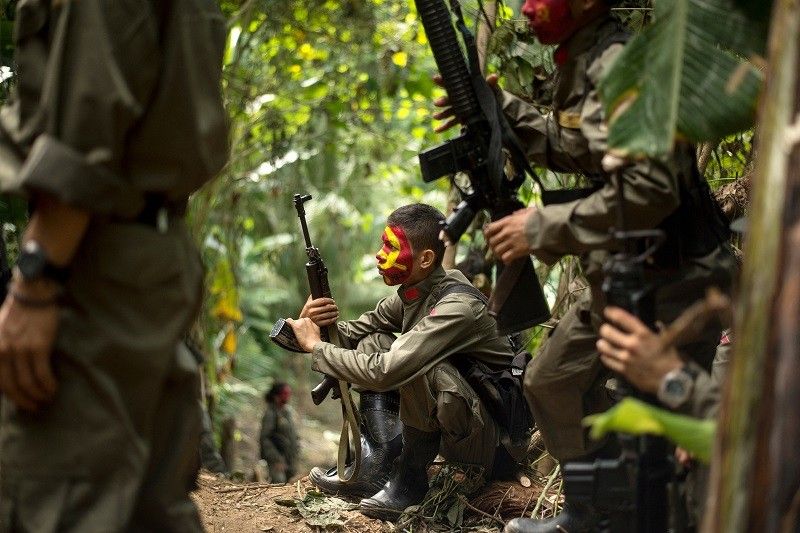House starts process for congressional concurrence on Marcos' amnesty proclamations

MANILA, Philippines — Leaders at the House of Representatives have begun the process of granting congressional concurrence to recent amnesty proclamations made by the president to former members of rebel groups.
House Speaker Martin Romualdez and other ranking lawmakers on Thursday filed House Concurrent Resolutions No. 19, 20, 21 and 22, which concur with President Ferdinand Marcos Jr.’s proclamations granting amnesty to former members of four rebel groups.
Specifically, each of the four concurrent resolutions pertained to Proclamation Nos. 403, 404, 405 and 406, which provide amnesty to former members of the Revolutionary Proletarian Army-Alex Boncayao Brigade (RPMP/RPA/ABB), Communist Party of the Philippines-New People's Army-National Democratic Front (CPP-NPA-NDF), Moro Islamic Liberation Front (MILF), and Moro National Liberation Front (MNLF).
The 1987 Constitution states that the president can grant amnesty “with the concurrence of a majority of all the members of the Congress.”
Previous presidents, including former President Rodrigo Duterte, have also used the granting of amnesties to encourage combatants to surrender and return to the folds of the law.
Expressing support for Marcos’ amnesty proclamations, Romualdez said that the lower chamber aims to pass the resolutions before Congress adjourns for the Christmas break, which will start December 15.
The resolutions convey that both Houses of Congress “recognize the need to act on rebel returnees' request for the grant of amnesty so that they may live in peace in the pursuit of productive endeavors,” Romualdez said.
Skepticism
Marcos’ amnesty proclamations were met with skepticism by Makabayan bloc lawmakers, who said that the current government must also free political prisoners and act on “state-perpetrated human rights violations” in communities if it is sincere with peace efforts.
Human rights organization Karapatan also raised concerns about the amnesty program and how it would merely “oblige” or “force” amnesty applicants to falsely admit to committing unlawful acts or being a member of the CPP-NPA and their diplomatic wing, the National Democratic Front of the Philippines.
If both chambers of Congress concur with the amnesty proclamations, the Amnesty Commission will then issue the implementing rules and regulations covering the amnesty program not later than fifteen days upon its effectivity date.
The amnesty proclamations only cover crimes “in pursuit of political beliefs” such as but not limited to:
- rebellion or insurrection
- conspiracy and proposal to commit rebellion or insurrection
- disloyalty of public officers or employees
- inciting to rebellion or insurrection
- sedition / conspiracy to commit sedition
- inciting to sedition
- illegal assembly
- illegal association
- direct assault
- indirect assault
- resistance and disobedience to a person in authority or the agents of such person
- tumults and other disturbances of public order
- unlawful use of means of publication and unlawful utterances
- alarms and scandals
- illegal possession of firearms, ammunition or explosives, provided that these crimes or offense were committed in furtherance of, incident to, or connection with the crimes of rebellion or insurrection
The coverage of amnesty proclamations do not include terrorism, kidnap-for-ransom, massacre, rape, crimes against chastity, drug-related charges, torture, grave violations of the Geneva Convention of 1949, genocide and war crimes.
- Latest
- Trending






























